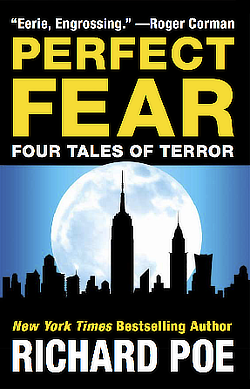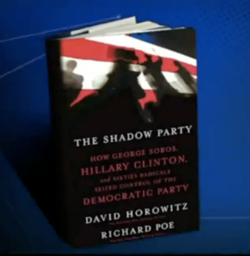REVIEW: Poe’s stories “remind me of The Twilight Zone”
|
by Richard Poe Wednesday, October 3, 2012 2:23 pm Eastern Time |
Archives Comments |
“Readers are becoming the new gatekeepers of the publishing industry…” writes novelist Kim Aleksander on his blog. “Reader reviews such as those on Amazon (and other sites) are becoming true indicators of not only popularity but also quality.”
Hear, hear! The days when a handful of critics at the Big Four trade mags could make or break any author are happily receding. Of course, there will always be a place for learned critics with professional credentials. But online reviews from perceptive readers help level the playing field. Often they provide insights which the professionals have overlooked.
A Perceptive Reviewer
In that regard, special kudos are due to one reader-reviewer at Amazon.com who made the perceptive observation that my stories in Perfect Fear show a strong influence from Rod Serling’s “Twilight Zone.” In a five-star review posted September 8, Diane L. of Manlius, New York spotted what she considered a glaring omission in the Q&A author interview which appears at the back of Perfect Fear. She writes:
[T]he author tells us about who has inspired him in his career… Edgar Allan Poe is mentioned along with Stephen King and some others. The one that is not mentioned, which really surprised me, is Rod Serling. When I read this book, this was the first author I thought of. They definitely remind me of “The Twilight Zone” stories — and to me, that’s a good thing.
High praise indeed! And it happens she is right. As with most people in my age group (the younger end of the Baby Boom generation), Rod Serling looms large in my pantheon of favorite horror writers, not only for his iconic Twilight Zone series, but perhaps even more for Night Gallery, another horror-fantasy series which Serling created and hosted years later. Night Gallery aired from 1970 to 1973.
The Twilight Zone was always available in after-school re-runs during my formative years, but Night Gallery was the show that all the kids were talking about in junior high school. Night Gallery was hot.
It was Night Gallery that fueled my nightmares during those painful years between the ages of 11 and 14 when my childhood came to an end, and America’s childhood too. It was a time of endings, when everything seemed to be fizzling out, from the uproar of the Sixties and the Vietnam War to the myth of American invincibility. The voice of Rod Serling, jaded and sonorous, echoed the melancholy temper of the times.
So why didn’t I mention Rod Serling in my interview with Paul Germano? Call it an oversight. I just plain forgot! Thank you, citizen-reviewer Diane L., for pointing out this obvious omission.







